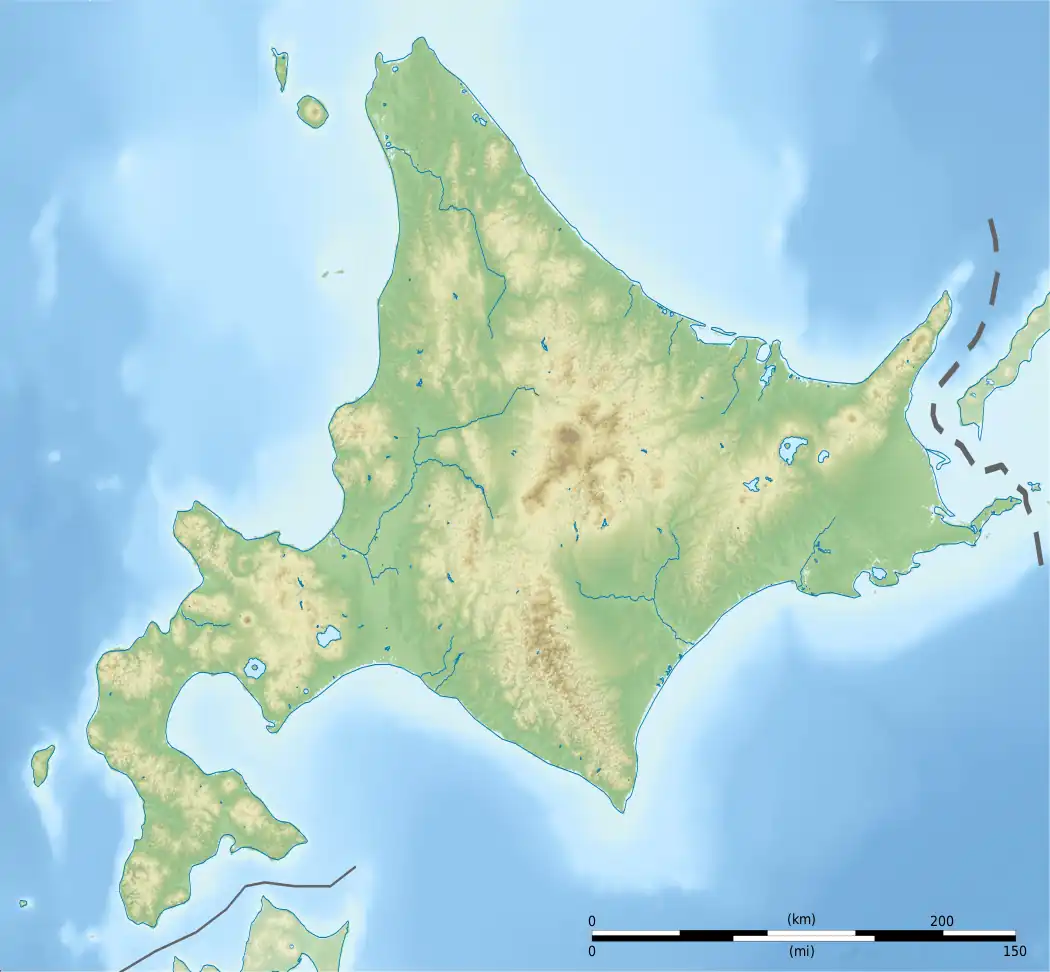Mount Maru (Kamishihoro-Shintoku)
Mount Maru (丸山, Maru-yama) is a lava dome located in the Nipesotsu-Maruyama Volcanic Group of the Ishikari Mountains, Hokkaidō, Japan. Mount Maru is also known as Higashi-Tokachi-Maruyama (東十勝丸山)[2] or Higashi-Taisetsu-Maruyama (東大雪丸山)[3] to distinguish it from other mountains with the same name. Only in 1989 did scientists discover that Mount Maru is a quaternary volcano.[2] The mountain sits on the border between the towns of Kamishihoro and Shintoku.[1]
| Mount Maru | |
|---|---|
| 丸山 | |
| Highest point | |
| Elevation | 1,692.1 m (5,552 ft)[1] |
| Prominence | 421 m (1,381 ft)[1] |
| Parent peak | Mount Nipesotsu |
| Listing | List of mountains and hills of Japan by height List of volcanoes by elevation |
| Coordinates | 43°25′3″N 143°1′51″E |
| Naming | |
| English translation | round mountain |
| Language of name | Japanese |
| Geography | |
| Location | Hokkaido, Japan |
| Parent range | Nipesotsu-Maruyama Volcanic Group |
| Topo map | Geospatial Information Authority 25000:1 ニペソツ山 25000:1 ウペペサンケ山 50000:1 糠平 |
| Geology | |
| Age of rock | Quaternary |
| Mountain type | lava dome |
| Volcanic arc/belt | Kurile arc |
| Last eruption | 1898 |
Geology
The western flank of the mountain shows accretionary complex from the late Eocene to the early Miocene. The eastern flank shows non-alkaline mafic volcanic rock from the early to middle Miocene. The mountain is topped with non-alkaline mafic rock from the middle Pleistocene.[4]
Eruptive history
Other than fumaroles, the last eruption of Mount Maru, according to historical records, was from approximately December 3, 1898 to December 6. Before that the last eruption was approximately 1700 BC.[2]
References
- Geospatial Information Authority topographic map ウペペサンケ山
- "Maruyama". Global Volcanism Program. Smithsonian Institution. Retrieved 2010-04-30.
- "HIGASHI-TAISETSU MARU-YAMA". Quaternary Volcanoes in Japan. Geological Survey of Japan, AIST. Archived from the original on 19 December 2012. Retrieved 30 April 2010.
- "Hokkaido". Seamless digital geological map of Japan 1: 200,000. Geological Survey of Japan, AIST. Feb 18, 2010. Retrieved 30 April 2010.

